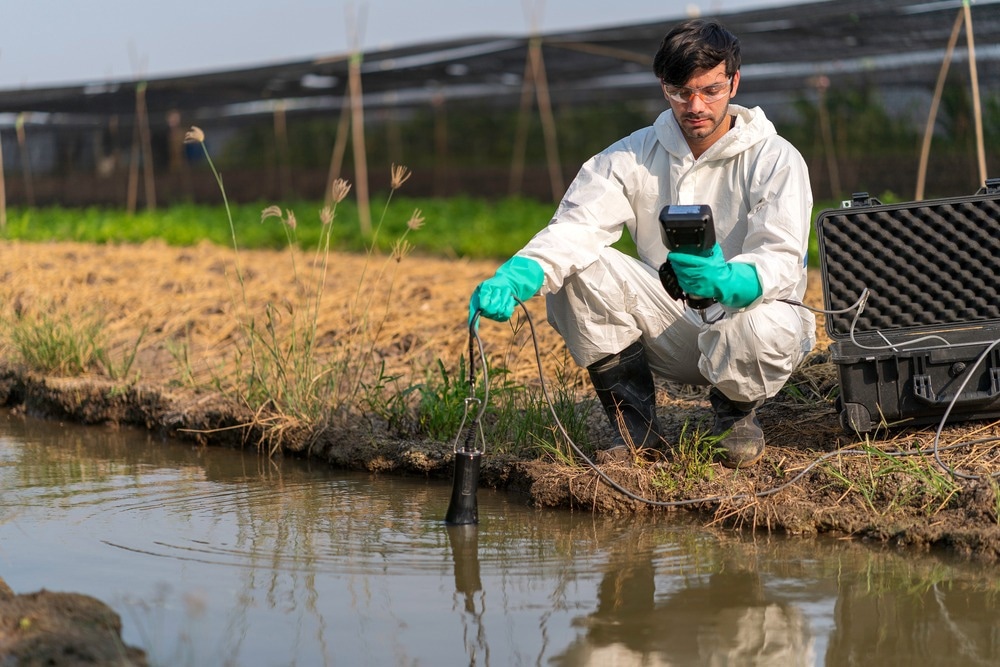More than 44 million individuals in the United States rely on unregulated private drinking water wells. Scientists from the University of New Hampshire and other institutions discovered that current monitoring practices do not truly capture groundwater pollution risks.

Image Credit: Chatchawal Phumkaew/Shutterstock.com
Researchers note that spikes in harmful bacteria, such as those from animal and human waste, vary seasonally, with the highest levels observed during summer months when temperatures exceed 90 °F.
This is concerning because many residents and homeowners across the country, including here in the Northeast, have been found to test their wells in colder months which can cause a false sense of security and underestimate the true threat of harmful bacteria in their drinking water.
Ranjit Bawa, Study Co-Author and Visiting Assistant Professor, Natural Resources and the Environment, University of New Hampshire
The investigators examined year-round water samples from nearly 50,000 wells across North Carolina from 2013 to 2018, according to the research which was published in the journal Science of the Total Environment. They discovered a significant gap between when private wells were sampled and when they were probably contaminated.
Since communities without access to public water infrastructure are more likely to be placed near industrial and agricultural pollution sources, the researchers concentrated on wells near hog farm lagoons to find spikes in bacteria levels such as fecal coliform and Escherichia coli (E. coli). They discovered the highest levels of bacteria during the summer months when temperatures surpassed 90 °F.
The samples collected in February and March had the lowest levels of contamination. There was no clear link between rainfall and bacterial detection; however, a connection was noticed with increased air temperature.
Other potential variables and contaminants, such as poultry operations, failing septic systems, hazardous waste sites, coal ash impoundments, and dry-cleaning solvent sites, were investigated but found to be unrelated to seasonal spikes in total coliform and E. coli.
Our findings underscore the need to refine federal guidelines that would not only recommend once-a-year testing for bacteria in private wells but also offer more guidance on seasonal timing.
Jacob Hochard, Study Lead Author and Knobloch Assistant Professor, Conservation Economics, University of Wyoming
According to the scientists, the results have implications for national and global water sources, particularly those at risk of contamination from adjacent surface sources of human and animal waste.
The researchers emphasize that narrowing the gap between perceived and actual risks of drinking water contamination could benefit public health, particularly for rural and underserved populations who rely on well water. In the long run, such targeted private well monitoring could improve the feasibility of forecasting environmental exposures in sparsely populated areas that would otherwise be expensive to monitor.
Nino Abashidze, University of Wyoming; Randall Etheridge, East Carolina University; Yuanhao Li, Norwegian School of Economics; Ariane Peralta, East Carolina University; Charles Sims, University of Tennessee; and Tom Vogel, East Carolina University are the co-authors of the study.
The National Science Foundation and the US Environmental Protection Agency funded the research.
Journal Reference:
Hochard, J., et al. (2023) Air temperature spikes increase bacteria presence in drinking water wells downstream of hog lagoons. Science of The Total Environment. doi.org/10.1016/j.scitotenv.2023.161426.